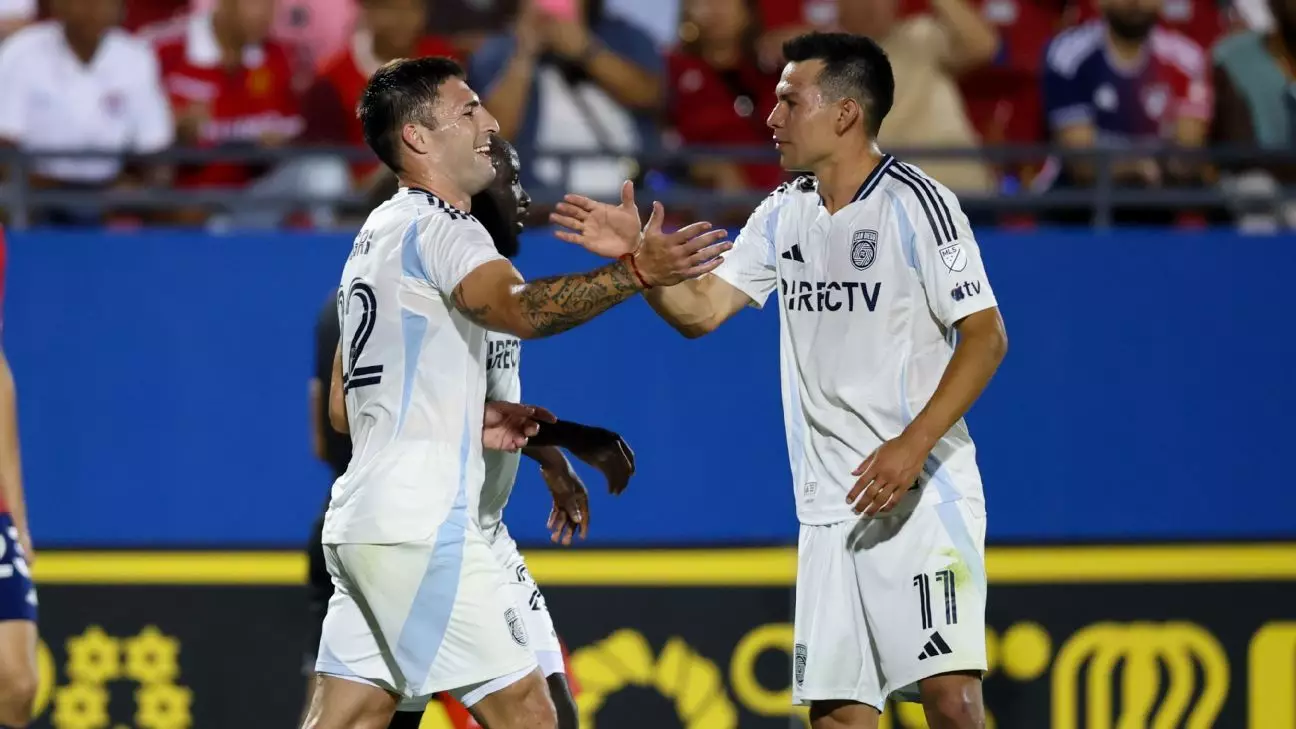The 2025 Major League Soccer season is reaching a stage where early form begins to solidify expectations. What stands out this year is a notable mix of teams demonstrating resilience despite adversity, alongside others grappling with consistency. The Washington Capitals’ ability to grind out results despite absences during the Gold Cup exemplifies the importance of squad depth in modern MLS. Securing a narrow win against a formidable Vancouver Whitecaps side highlights a core MLS truth: winning against the league’s bigger challenges is never easy, and adaptability remains crucial.
On the other hand, Philadelphia Union’s recent struggles underscore a key lesson on how injuries and player availability can dramatically influence outcomes, even for elite teams. The Union, missing vital players and forced into tactical shifts, threw a line on Sunday’s loss that fans should neither overstate nor simply overlook — a reminder that even giants stumble when stretched thin.
Emergence of New Contenders and Tactical Evolution
One of the more fascinating narratives is the rise of San Diego FC, a newcomer catching fire with an offensive onslaught. Four consecutive wins, averaging 3.5 goals per game, signal a high-risk, high-reward style that currently overwhelms opponents. This demonstrates how aggressive attacking strategies can quickly level the competitive playing field for expansion teams, turning them into formidable opponents in mere months.
Similarly, Nashville SC’s ongoing unbeaten run since April under BJ Callaghan speaks to the effectiveness of balanced control on both ends of the pitch. Nashville’s methodical game management reflects a more nuanced style flourishing in the league — one that values tactical discipline as a pathway to sustained success, contrasting with San Diego’s frenetic offense.
Adversity Breeds Adaptation
Seattle Sounders’ recent defensive challenges, particularly missing key center backs, reveal a broader MLS reality: injuries frequently disrupt team chemistry and performance. Yet, Alex Roldan stepping into an unfamiliar defensive role and contributing to a clean sheet against Austin FC is a testament to the league’s often underrated player versatility. Seattle’s ability to cling to victory in less-than-ideal circumstances underscores the mental toughness necessary to endure in MLS.
Other teams like Columbus Crew have exhibited impressive control in matches, highlighted by scrappy but effective performances against top rivals, signaling a blend of grit and tactical savvy necessary in a grueling season. Meanwhile, Minnesota United’s capacity to salvage points even while depleted by international duty points to strong organizational depth, though their late concessions hint at lingering defensive issues.
The Role of Star Players and Injuries
Star power remains pivotal, as seen in FC Cincinnati’s reliance on Evander, whose direct contributions continue to influence vital wins. This pattern introduces a caution: while individual flair can drive victories, reliance on singular talents poses risks should injuries or form dips occur.
Conversely, teams like Toronto FC and Portland Timbers highlight the fragility of momentum when key players are missing. Toronto’s clinical 3-0 win over a weakened Portland side shows opportunity seized amid adversity, yet Portland’s 3-0 loss to Toronto accentuates how injuries to stars Antony and Jonathan Rodríguez gravely impact attacking potency.
Managerial Influence Under Scrutiny
The recent antics of New York Red Bulls’ Sandro Schwarz, earning a red card for confrontation, shed light on how managerial temperament impacts team composure and public image. Despite this, NYRB’s ability to draw with Minnesota identifies the disruptive but sometimes beneficial energy a passionate coach can inject.
Meanwhile, interim managers like David Critchley at St. Louis City face the uphill battle of rebuilding and instilling identity amid underwhelming results. Critchley’s task reinforces that managerial changes, while sometimes necessary, require time to translate into on-field success.
Challenges Facing Established Teams
LAFC’s recent 1-0 loss to Vancouver in the swan song match of Olivier Giroud is symbolic of transition. Giroud’s departure leaves a significant void, but also a tantalizing opportunity in the summer transfer market. LAFC’s ability to secure a marquee replacement in the DP spot will signal whether they remain title contenders or enter a period of recalibration.
Inter Miami’s emphatic loss to PSG in the Club World Cup, while no shame given PSG’s dominance, underscores a structural gap between MLS and elite European clubs. However, Miami’s deep run remains a milestone that can boost league credibility, albeit exposing areas requiring growth, particularly in squad depth and high-level match experience.
Playoff Races Heating Up and the Fine Margins
The battle for playoff positioning in both conferences highlights MLS’s competitive depth. New England’s inability to protect leads speaks to a mental and tactical fragility many teams face late in matches. Colorado’s squandering of a three-goal advantage further enforces this point. Both teams risk losing traction if they fail to resolve defensive lapses.
Meanwhile, tight results around the bottom half, such as Montréal’s gritty 1-0 victory over New York City FC despite limited possession, provide evidence that possession statistics aren’t always decisive — MLS games are often about seizing critical moments and tactical execution under pressure.
Why MLS in 2025 Is a Microcosm of Global Soccer Trends
MLS in 2025 is increasingly mirroring global football evolution: tactical flexibility, squad rotation, reliance on star players interspersed with young talent, and strategic recruitment in transfer windows. Clubs like San Jose Earthquakes, pushing youth movement along with renewed firepower, suggest the league is simultaneously nurturing its future stars while staying competitive today.
Equally important is the growing emphasis on mental resilience. Teams that adapt during injuries or managerial upheavals often sustain better results, a trait exemplified by Seattle and Columbus. This resilience, coupled with MLS’s expanding investment in scouting and player development, forecasts an exciting and unpredictable season as the league continues to mature on the international stage.

